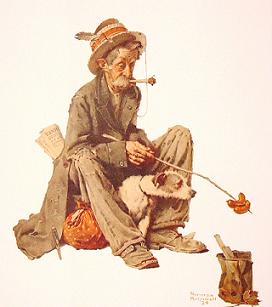On class consciousness
Oh, Utne. What won’t you romanticize?
Fellow workers, I know that times are tough. Lots of people are losing their jobs. Lots of people are losing their homes.

But I’m sure that, as you hit the skids, or as you try to figure out how to feed yourself and your family without any income, you’ll be very glad to know that your economic pain is contributing to a national character correction
, which might eventually lead to your city’s government adding a few more bike lanes, to penny-pinching high-enders
shopping for their overpriced organic arugula at Safeway instead of at Whole Foods, and to some other high-enders,
who had enough money in the bank to spend the past several years on a fossil-fueled consumerist binge
that they need to be jolted out of,
to possibly stop buying quite as much stuff as they used to buy. I am sure that you will feel grateful for your chance to play your part in this great national exercise in character-building and simple living. Right after you finish eating saltines for dinner.
By the way, in case you were wondering, other great ways of making a national character correction
include a total-war command economy and blowing the hell out of a few million fellow workers in far away countries.
Do I need to mention what a special kind of professional-class Progressive
self-absorption, callousness, and obliviousness it takes to write something like In Praise of Economic Pain — and then to pass it off as Leftist commentary, no less? Do I need to mention how very clear it is that the intended audience of an article like this are people who, as a class, are generally fairly secure in their own living situation and income, and so in no really great danger of ever feeling much of the economic pain that they are so quick to praise?
Well, if do, then I guess I just did.
Fellow workers, are these your allies? Do they speak for you? Have their methods worked for you? Is this the change you can believe in?
If not, then what we need to do is to get together — all of us who are small enough to fail — and cut through the seasonal noise and start talking about ways that we can unite amongst ourselves in order to take control of the conditions of our lives and our labor. We need to talk fighting unions and the victories that they can win. We need to talk mutual aid and how we can help each other, person to person, in our own neighborhoods and through our own efforts, through both bad times and good. We need to talk direct action, about organizing and taking control of the conditions of our lives in ways that don’t take ballot boxes or political parties or coalition partners
who are too busy Believing in Change to bother themselves about whether we eat or starve, about the ways that we can do these things ourselves, with our own hands.
